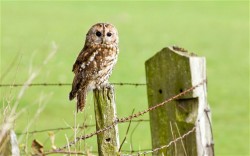There are scores of coaches out there so you need to know what you are looking for.
There may be times during your career when it is useful to hire an executive coach to guide you in your role, particularly if you have just been promoted or have moved into a new industry. But while there are many coaches to choose from, there are far fewer really good ones. Here’s how to find a good one:
1. Think about what kind of help you need. Are you looking for some short term coaching while you make the transition to a more senior role, or into a new industry? Or do you need help with a specific skill you feel you lack, for example, leadership skills or managing employees through a period of change? Or are you simply looking for a neutral sounding board outside business and family? The answer will make it easier to know what you are looking for.
2. Decide if one-on-one is what you want. Ask yourself if you really need a coach or whether you would be happier discussing issues in a group setting where you can get other people’s input, for example in a peer to peer support group such as The Academy of Chief Executives. There is no right or wrong answer, it is just what you feel most comfortable with.
3. Do your research. Anyone can call themselves an executive coach, so make sure the one you choose has relevant experience and expertise – ideally at last five years of it – a professional background, that they are accredited to a recognised coaching organisation and that they work with a strong code of ethics.
Practitioner Karen Page says: “People can make significant life changes as a result of working with a qualified coach and you need to know and feel that you are in safe hands with someone who has your best interests at heart.”
4. Watch them in action first. Many coaches also do consulting for companies and organisations. Get them into your workplace for a one-day group consultancy project so you can watch them at work and decide if their style and approach would suit you personally, before considering them for a one-on-one coaching role.
5. Coach them. Ask some questions of your own – why did they decide to become a coach? What else have they done in their career? What else did they want to be? What is it about coaching that they enjoy – or hate? What special qualities do they bring to the job? Your aim is to choose someone who actually chose to be a coach. A good coach is someone who has an innate and intuitive ability to make a meaningful connection with an individual on a one to one basis. If it’s forced or artificial, it isn’t going to work.
6. Ask them about their approach. Good executive coaches will be able to talk you through the process they use, the skills they can teach you and the practical tools at their disposal to get you to where you want to be. Do they plan to use self-assessment and 360 degree feedback from your colleagues as part of their coaching methods, for example? If they are evasive about the approach they take, or just smother you in lots of enthusiasm without any substance, move on.
7. Make sure you can get a word in edgeways. A good coach will listen a lot more than they talk so if on your first meeting they pause only to breathe, look elsewhere. You are not looking for a set formulaic response, you are looking for someone who will actually listen to what you are saying.
Page says: “A good coach is someone who is confident enough and experienced enough in their own abilities that they can be flexible in their approach, and be guided by the client’s needs in finding the best way forward. A rigid ‘one size fits all’ approach may suit an inexperienced coach who lacks confidence or ability, but it is rarely going to be the best option for an individual seeking help and support.”
8. Find someone you get on with personally. You are going to be spending a lot of time with this person and revealing all kinds of personal details to them so you need to be able to trust them and feel confident that they have your best interests at heart. Trust your instincts. If you feel even slightly defensive or antagonistic towards them, it is not going to work.
Page says: “A good coach is one who allows the clients to find out the answers for themselves, by guiding them, helping them and supporting them to discover a deeper understanding of themselves and who they are as a person. They do not impose their own views or solutions, instead they work alongside the client in partnership to help them find what it is they are really looking for.”
9. Make sure that confidential really does mean confidential. It is essential that you are 100% confident that what you talk about with your coach will go no further, so even if your organisation provides coaching for executives, you may prefer to find your own external coach outside your organisation who can be completely impartial and objective. Then make sure they understand upfront the absolute importance of complete confidentiality before proceeding further.
By Rachel Bridge

